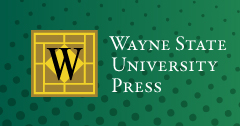Abstract
Liz Flahive and Carly Mensch’s Netflix series, GLOW (2017–), reimagines the production of GLOW: Gorgeous Ladies of Wrestling (1986–1989), the first US professional wrestling show with an all-female cast. The Netflix series can be understood as historiographic metafiction: a reimagining of the past that captures a new perspective enlightened by hindsight. In season 1, episode 6, “This Is One of Those Moments,” Ruth Wilder (played by Alison Brie) unwittingly attends an unconventional bris thrown by Soviet Jews and refuseniks who have resettled in Los Angeles in the 1980s. Ruth constantly misreads and misinterprets the people and situations around her. Her subsequent misunderstanding is rendered comically and serves as a symbol for postmodern disorientation. Executive producer and guest writer Jenji Kohan incorporates mockery, ridicule, and hyperbole in a display of the self-deprecating, self-critical, and dark elements of Jewish humor in representing the position of refuseniks and Soviet Jewish émigrés in the United States. Engaging with diverse theories on Jewish humor in postmodern television, this article focuses on the relationship between suffering and celebration, intention and reality, and ancient ritual and modernity. This one episode epitomizes how these elements are performed and represented, forcing the audience to question what is genuine and what is forced or fake. Despite the characters’ best efforts to attain authenticity, they continue to struggle to understand, belong, and interpret the cultures surrounding them.
Recommended Citation
Miller, Thaïs
(2020)
"Representations of Refuseniks and Soviet Jewish Emigration in GLOW: Gorgeous Ladies of Wrestling,"
Jewish Film & New Media: Vol. 8:
Iss.
1, Article 3.
Available at:
https://digitalcommons.wayne.edu/jewishfilm/vol8/iss1/3
